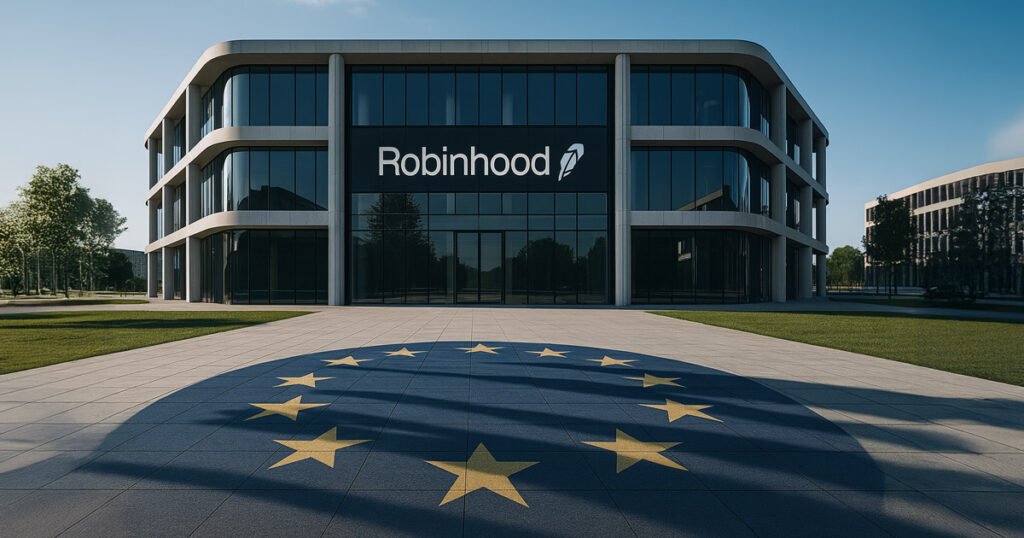Robinhood’s Private Equity Tokens: Navigating Regulatory Challenges in the Digital Asset Market
Robinhood’s recent foray into private equity tokens, aimed at providing investors with exposure to tech giants like SpaceX and OpenAI, has sparked significant regulatory scrutiny in Europe. According to CNBC’s report on July 7, OpenAI has expressed concerns regarding Robinhood’s digital assets, clarifying that these tokens do not represent equity ownership in the company. The Bank of Lithuania, Robinhood’s primary regulator within the European Union, is currently seeking detailed information from the brokerage to assess the legality and compliance of these products. This regulatory examination underscores the complexities and challenges that arise as financial institutions navigate the rapidly evolving landscape of tokenization.
The Launch of Robinhood’s Tokenized Securities
On June 30, Robinhood announced its plans to expand into tokenized securities, citing intentions to offer over 200 tokenized U.S. stocks and ETFs to European investors. This expansion positions Robinhood as a key player within the burgeoning sector of tokenization. With the rise of blockchain technology, the brokerage aims to capitalize on this transformative wave by launching private equity tokens and a new layer-2 blockchain framework. The allure of tokenized equities is evident, especially as the market for these instruments shows signs of potential growth.
OpenAI’s Response and Market Implications
While Robinhood is pushing forward with its tokenization efforts, OpenAI has distanced itself from the cryptocurrencies associated with its name. The tech giant has warned investors that Robinhood’s OpenAI tokens do not equate to an equity stake or direct ownership in the company. Such statements have raised concerns among investors and regulators alike, illustrating the necessity for clarity in the market. As financial institutions scramble to gain a foothold in this evolving sector, market confidence hinges on transparent communication and trust between companies and their investors.
The Tokenization Market Landscape
As of late June, the tokenization market is estimated to be valued at over $24 billion, despite being in its nascent stages. Currently, tokenized private credit and U.S. Treasury debt dominate this landscape, comprising the majority of the market’s value. However, tokenized equities, although representing a smaller segment with approximately $188 million in market share, show promise for rapid expansion. Major financial players, including BlackRock and Franklin Templeton, have recognized this potential, launching tokenized money market funds and exploring blockchain-based settlement mechanisms to enhance efficiency and transparency.
Regulatory Uncertainties and Challenges Ahead
Despite the enthusiasm surrounding this digital transition, significant legal and regulatory uncertainties loom. A persistent debate continues between regulators and legal experts regarding whether tokenized equity instruments will necessitate full securities registration or if alternative derivative-like structures suffice for compliance in both Europe and the U.S. For Robinhood, the ongoing regulatory investigation in Lithuania could set a crucial precedent for its plans to roll out its tokenization framework globally, impacting how it engages with investors and regulators on a larger scale.
Balancing Innovation and Investor Protection
Robinhood recently presented its strategy at the EthCC conference in Brussels, underscoring its commitment to tokenize a diverse array of financial instruments. Nonetheless, the backlash stemming from OpenAI’s concerns highlights the fragile balancing act between fostering innovation in the digital asset market and ensuring adequate investor protections. As tokenization continues to gain traction, the need for regulatory clarity and industry guidance cannot be overstated. In an environment marked by rapid technological advancement, robust regulations will play an essential role in protecting investors and ensuring that market growth is sustainable.
Conclusion: The Future of Robinhood’s Tokenization Efforts
As Robinhood embarks on its ambitious journey into the tokenization of private equity, the intersection of regulation, innovation, and market demand remains ever-critical. With global regulatory authorities like the Bank of Lithuania closely evaluating the legality of such financial instruments, Robinhood’s ability to navigate these challenges will shape its future success and influence the broader landscape of digital assets. The ongoing dialogue surrounding tokenization and equity ownership rights signifies a pivotal moment in finance, as established institutions and newcomers alike adapt to the web of regulatory hurdles and market dynamics in pursuit of growth and sustainability.


